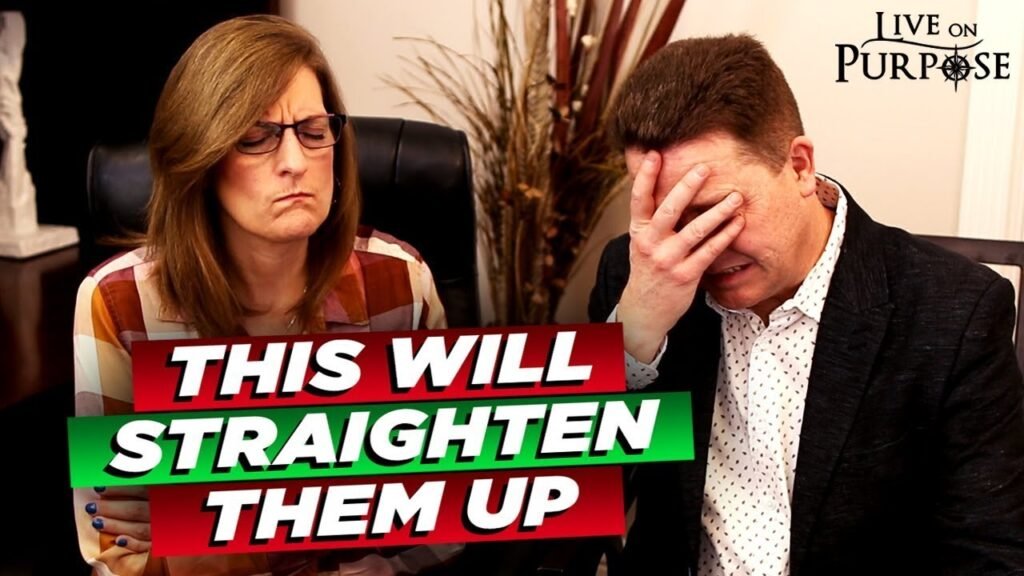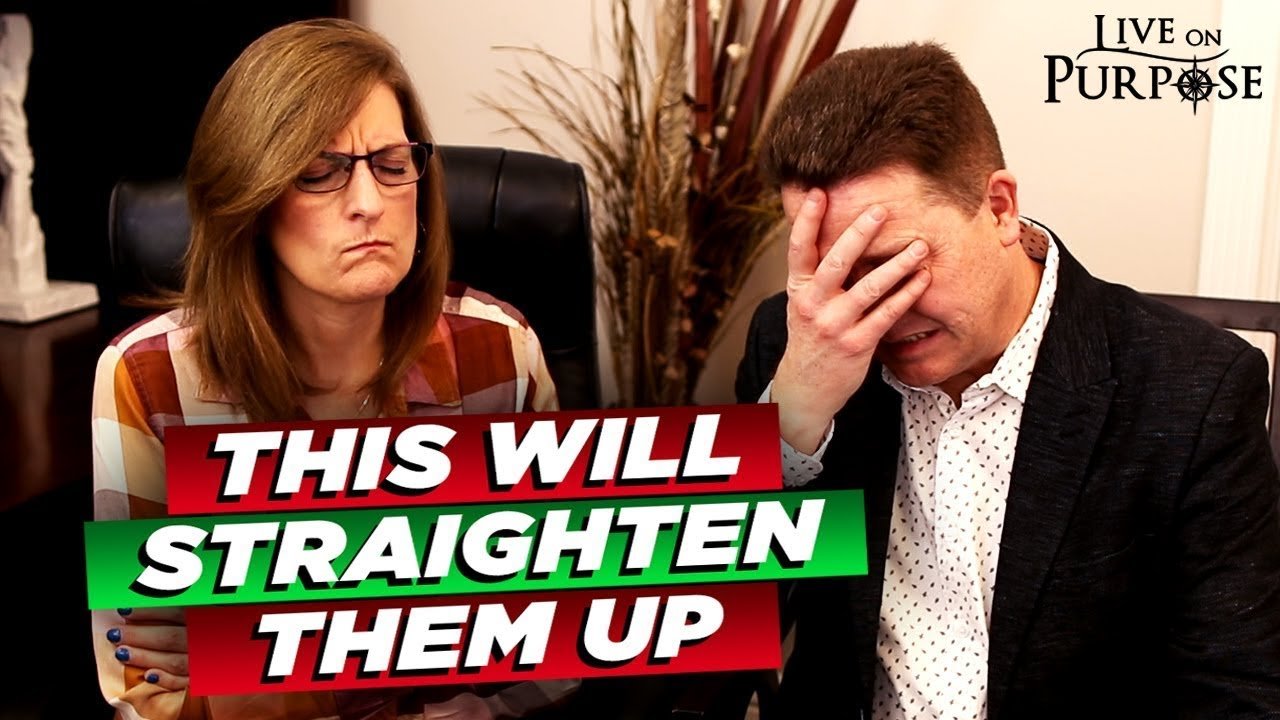Dealing with a rude and disrespectful child can be incredibly challenging for parents, as it often triggers strong emotions. In this video by Live On Purpose TV, Dr. Paul Jenkins outlines three specific steps to help you navigate this situation. The first step is to maintain respect yourself and model respectful behavior, even when faced with disrespect from your child. Next, teach your child the three stages of behavior and consequences, so they understand the impact of their actions. Finally, separate your emotions from discipline and focus on addressing the behavior with appropriate consequences. Dr. Jenkins also recommends resources such as the Parenting Power-Up program and coaching services, as well as the book “Pathological Positivity” for further guidance on positive parenting.
In order to effectively deal with a rude and disrespectful child, it becomes crucial to maintain respect yourself, model respectful behavior, teach the child about behavior and consequences in three stages, and separate your emotions from discipline. By following these steps, parents can navigate through this challenging situation with more ease and create a positive and respectful environment for their child. Resources such as the Parenting Power-Up program, coaching services, and the book “Pathological Positivity” provide additional support and guidance for those seeking to enhance their positive parenting skills.

Step 1: Maintain Respect and Model Respectful Behavior
Maintaining respect and modeling respectful behavior is the first step in dealing with a rude and disrespectful child. It can be challenging to remain respectful when someone is being disrespectful to you, especially when it’s a younger person. However, it is crucial to find ways to maintain respect for yourself.
To maintain respect, it’s important to become aware of how you show up in your own body. Pay attention to your facial expression, tone of voice, and body language. Keep your face calm, avoid reflecting anger, and ensure that your eyebrows are relaxed. By staying calm and composed, you are showing respect for yourself and modeling respectful behavior for your child.
A helpful analogy comes from Dr. Paul Jenkins’ experience working with a group of tough kids involved in gang activity. He encountered a kid in the group who believed in respecting only those who respected him. However, Dr. Jenkins emphasized the importance of being respectful because of who you are, not based on how you are treated. It can be challenging, but it’s crucial to be respectful no matter what, even if your child is being disrespectful. Remember that loving your child does not imply removing all consequences for their behavior. Love them no matter what, but hold them accountable for their actions.
Step 2: Teach the Child the Three Stages of Behavior and Consequences
The second step in dealing with a rude and disrespectful child is teaching them the three stages of behavior and their respective consequences. It’s essential to help children understand that their behavior falls into different stages and that each stage has its consequences.
Start by identifying and defining the behavior stages to your child. Explain to them what constitutes expected and unexpected behavior. By using positive language, such as expected behavior instead of bad behavior, you can help your child understand the distinction more effectively. Make sure they grasp the idea that expected behavior earns respect from others, while unexpected behavior might lead to negative consequences, such as being treated differently by their peers.
Once the behavior stages are explained, it’s important to clarify the consequences for each stage. Show your child the potential outcomes of their behavior and help them understand that their choices and actions directly relate to the consequences they experience. This understanding will enable them to make better decisions that align with their desired outcomes.
Consistently reinforcing the lessons is crucial in helping your child internalize the importance of their behavior and its impact. Be patient and remind them of the three stages whenever they display inappropriate behavior. By consistently reinforcing these lessons, your child can develop self-awareness and become more responsible for their actions.
Step 3: Separate Emotions from Discipline and Focus on Behavior
The third step in dealing with a rude and disrespectful child is to separate emotions from discipline and focus solely on their behavior. It’s natural to feel frustrated or angry when your child behaves in a disrespectful manner, but it’s important to stay calm and composed.
When addressing your child’s behavior, communicate your expectations clearly and calmly. Explain how their behavior is not meeting those expectations and discuss the consequences they will face as a result. By removing emotions from the equation, your child can better understand the impact of their behavior and maturely recognize the connection between their actions and the consequences they experience.
Consistently enforcing consequences is crucial for helping your child learn and grow. When your child displays disrespectful behavior, follow through with the appropriate consequences. This consistency will reinforce the importance of respect and accountability in their minds.
Remember that separating emotions from discipline does not mean disregarding your child’s feelings. Show empathy and understanding, but make it clear that their emotions should not be an excuse for disrespectful behavior. By focusing on their actions and applying consistent consequences, you can guide them towards better behavior while maintaining a positive, respectful relationship.
Recommended Resources
Dealing with a rude and disrespectful child can be challenging, but you don’t have to face it alone. Here are some recommended resources that can provide additional support and guidance:
1. Parenting Power-Up Program
Consider exploring the Parenting Power-Up program, which offers a comprehensive approach to positive parenting. This program can provide you with valuable tools and strategies to navigate challenging situations and foster a respectful and harmonious parent-child relationship.
2. Coaching Services
If you need more personalized guidance and support, coaching services are available. Professional coaches can work with you to address specific challenges, offer tailored advice, and develop effective strategies for dealing with a rude and disrespectful child. Take advantage of a free Parenting Breakthrough call to discuss your needs and explore coaching options.
3. Book Recommendation: ‘Pathological Positivity’
For a deeper understanding of positive parenting principles, consider reading the book “Pathological Positivity” by Dr. Paul Jenkins. This book serves as a starting point for embracing positivity and implementing effective parenting techniques. Visit DrPaulJenkins.com to get a free copy of the book, where you only pay for the shipping.
Remember, dealing with a rude and disrespectful child takes time and patience. By following these steps and utilizing the recommended resources, you can foster a more respectful and positive environment for both you and your child. Stay committed, keep learning, and remember that every challenge presents an opportunity for growth and improvement.

